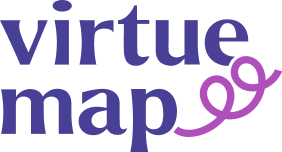Hey, my name is Rachel, and for the longest time, I was the poster girl for paralyzing indecision.
Whether it was on the job or in my personal life, I had a real hard time actually making a decision and going forward.
I would see these decision points coming for days, weeks, even months, and I was still flip-flopping on what I wanted to do when it was time to make a decision, and for a long time after.
Running Out of Options
Sure, I was good at what I did as an insurance claims specialist, but eventually, management wants to see you take opportunities that come your way to further your career.
Despite their best efforts to give me room to grow, I let those opportunities go by.
I could always think of a million reasons not to pursue them:
“it will screw up my routine;”
“I might have to move to a different part of the area”
“I want to be sure I have time for my family.”
Recognize any of those excuses? I was full of them.
Eventually, management stopped wasting their time trying to help me grow and gave these opportunities to other people, many of them who were now younger than I was.
I realized that I only had myself to blame for my stagnation at my current level but didn’t have the confidence to go after any opportunities I saw, including one that would likely have paid huge dividends down the line.
The Brick Wall

Personally, my inability to go after things I wanted or even tell someone I loved them and wanted to marry them was taking its toll.
Even when the love of my life proposed to me, all I could see were the possible pitfalls that came with getting married and starting a new life.
So, even when he popped the question that should have filled me with joy, I was paralyzed with indecision.
A “Yes” would change things completely. What if things didn’t work out?
As with so many other big decisions, it was far easier to continue the status quo and keep things the way they were.
Except this time, I couldn’t kick the can down the road.
Paul needed a yes-or-no answer sooner rather than later, and he just couldn’t figure out why I was holding back.
To this point, he would joke that I needed somebody to make my decisions for me.
Well, he didn’t know how right he was. Because left to my own devices, I was going to break his heart, either by telling him “no” outright or a week, month or year down the road.
But that’s exactly what I did. I told him I wasn’t ready to make that kind of commitment. Worse, I couldn’t tell him when I would be ready to make that commitment.
He knew it wasn’t because I was interested in other people; he just couldn’t fathom the dread I felt whenever it came time to make a decision.
I tried to explain this to him, but when the words came out of my mouth, my indecisiveness seemed like a trivial thing that I should be able to just get over, now that I knew that’s what was going on.
But that was far easier said than done.
Adrift
So, once I had said no to my fiancé, (I had said “not yet,” but since I didn’t provide a date, certain or estimated, when I would know one way or the other, my answer was essentially no.)
Well, obviously, that was no good for either of us.
When Paul wasn’t around, I realized that his presence alone had helped me to make some decisions.
Without him, I was a wreck, not knowing whether to try to start dating, to move away to get a fresh start, or to give up altogether.
I was all over the place, and I was unsure where to turn.
Finding Answers

One of the few benefits of being on my own was that I had plenty of time to look around and try to figure out why this kept happening to me.
In doing so, I came across a site called Virtue Map that seemed to ask the right questions – questions designed to get to the heart of what I was doing and why.
I filled out the form and went on with life, every once in a while being reminded that the Virtue Map system had prepared me a three-month personalized plan designed specifically to help people like me overcome procrastination.
Well, one night, Paul and I really had it out. He wanted to get to the bottom of why I was acting the way I was, and I couldn’t give him an answer that made sense.
But I did tell him about Virtue Map, and again he was shocked that I hadn’t availed myself of this plan.
Eventually, after much back and forth, he gave me an ultimatum. If I didn’t at least try to get to the bottom of this, he wouldn’t be coming back.
So, left with little choice from my perspective, I pulled the trigger.
And what I received was well worth twice the price I paid.
It essentially was a guided program that gradually revamped my way of thinking so that decisions no longer seemed so perilous to me.
It allowed me to gain some perspective and realize that even a decision that doesn’t work out won’t ruin me for life.
Basically, it took the scariness out of decisions for me and allowed me to look at them logically and emotionally without the constant fear of what might happen if I “chose wrong.”
And two months later, I came back to him and told him I was in the game if he was.
Ironically, he was now the one who needed to think it over given my past behavior, but he also chose to give this another try, and now here we are six months later, still trying to figure things out, but immensely happy to be doing it together.
My new, comparatively quicker decision-making process has also allowed me to look at my career, where I am, and where I want to be, and put together a roadmap to get me there.
Like many things in this world, what caused me to give Virtue Map a try was the fact that it was speaking to me in language with which I could commiserate. It wasn’t patronizing; it wasn’t full of gobbledygook.
It was able to put things into perspective and show me how to make progress to change mine.
And if you give it a shot, it can change your approach to life as well.
